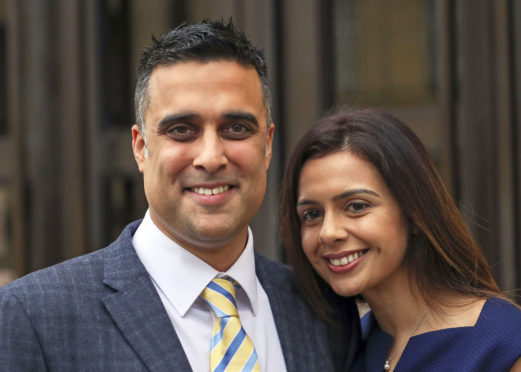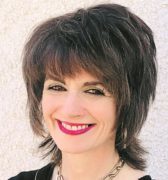In a courtroom in Michigan, USA, last week, a row of five-year-old children, only their eyes and noses visible above the height of the front row barrier, waved pink paper hearts on sticks, like little love lollipops.
They were there to support their classmate, Michael, who was sprawling casually in an adult chair, in front of a judge adorned in a necklace made of Christmas decorations. The court process was to ratify Michael’s adoption, and his beaming parents couldn’t have looked happier. Nobody mentioned that Michael was black while his adoptive parents were white. Why would they?
It’s a question that the Royal Borough of Windsor and Maidenhead Council should try to answer, given that a British judge has just ruled against them in a court decision regarding mixed race adoption. Sandeep and Reena Mander were awarded over £129,000 for being discriminated against by the council after enquiring about adoption in 2016. Don’t bother applying, the Manders claimed they were told by social services, they would be more successful trying in India.
Instead, the couple adopted in America and part of their settlement was recompense for the costs incurred in adopting abroad.
Of course there should be anger at payouts that waste substantial amounts of public cash – but the anger should be channelled in the right direction. Yes, the Manders look like a middle class, affluent couple who were given money from a system groaning under the weight of demand from those far needier.
But I, for one, am pleased that they were compensated. As a couple, they have endured the pain of failed IVF attempts and the loss of one early pregnancy. To then endure the humiliation of being told their genealogy made them incapable of offering love and care to a child in their community is cruel and crass.
Does money compensate? No, but sometimes, as a society, you have to pay for mistakes, make honest reparation for things that go wrong. Muttering a surly, behind-the-scenes apology in some dingy council office isn’t good enough. A social worker who acted for our society – for you and me in other words – told the Manders they couldn’t look after a white child. So now, on behalf of you and me, the Council need to pay out to say they got it wrong.
Public symbols are important. This one goes right to the heart of our notion of family. There is no such thing as the saccharine-coated Waltons, except on television. None of us live in an ideal family that is without tension or discord, without hardship or challenge. There are money worries and emotional worries, and fears about health, and tragedies that sometimes almost break us. But what characterises an ideal family is one where, in the final analysis, love transcends difficulty more often than not, and peace and security are more common than fear and isolation. And not one bit of that depends on skin colour.
At this time of year, perhaps we examine the concept of ‘family’ even more than usual. For some, there is the nativity. But for most of us, there is also a nostalgic backward glance to childhood Christmases and for the lucky ones among us, the love, fun and laughs that characterised them. For those of us who are parents, the feel of your child’s soft, round limbs circling your neck, their cheek on yours, the unconditional love they heap on you, is never forgotten. The ability to give and receive that love is surely what characterises good parenthood.
What makes the Mander case all the more ridiculous is the fact that the number of children in care is increasing, while the number of children being placed in adoptions has fallen by a third since 2015. The Manders were unlucky with IVF, but the success rate of fertility treatment has actually risen from 7% to 30% and that has had a knock-on effect. Adoption UK’s chief executive, Sue Armstrong, has said, “We urgently need to see improvements in the way adopters are recruited, trained and supported to ensure children find the loving, stable homes they deserve.” Somebody should tell Windsor and Maidenhead council.
The 2014 Children and Families Act supposedly put paid to the notion that children should only be with parents of the same ethnicity. But clearly, there are rules for some and rules for others. If pop stars like Madonna can adopt children from Malawi, there is no reason why potential parents of Indian descent can’t look after white children. Couples generous enough to open their doors, their hearts, and their wallets, to a homeless child certainly need to be scrutinised – but for the things they can offer the child, not the things they can’t.
In America, the row of children at Michael’s adoption hearing were white. “My name is Lily and I love Michael,” one told the white judge. Michael’s teacher embraced the fact that everyone is the courtroom was emotionally connected. “We began the school year as a family,” she said. “Family doesn’t have to be DNA – because family is support and love.”
Catherine Deveney is an award-winning investigative journalist, novelist and television presenter

